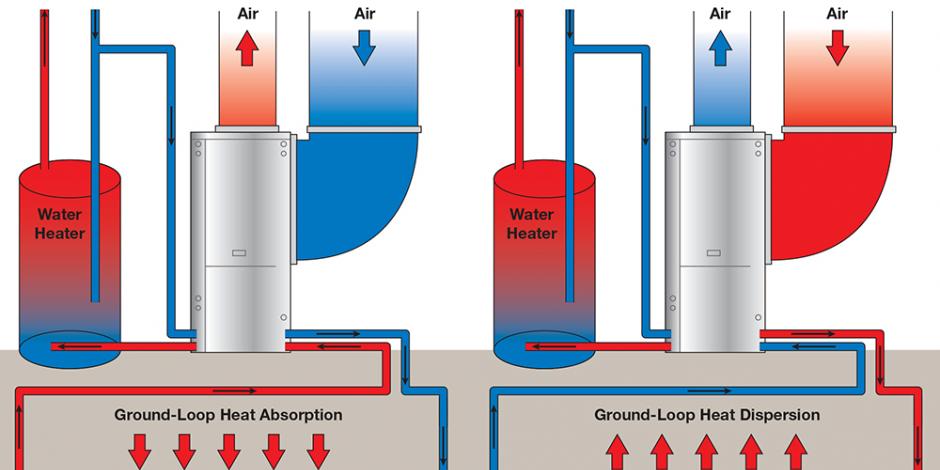
Ground Source Heat Pumps, also known as geothermal systems, use the relatively constant temperature of the ground to provide heating, cooling and hot water for homes and buildings. A typical closed loop system uses a series of vertical wells into which plastic pipe is lowered and then brought back to the top of the well. The plastic piping connects to a heat exchanger inside the home or building. An antifreeze solution is pumped into the wells and then back out to the heat exchanger.
During the summer, the system takes heat from the home or building and pumps it down to into the cooler ground so that the solution returns to the heat exchanger cooler than it left. The heat exchanger then allows cool air to be distributed through traditional forced air ductwork. In the winter, the scenario is reversed: the heat exchanger sends cool liquid down through the wells where it returns at a higher temperature. The warm liquid can then be used for both hot water and forced air heating applications.
 Geothermal Heat Pump Systems Are Eligibile for a 30% Federal Tax Credit Rebate
Geothermal Heat Pump Systems Are Eligibile for a 30% Federal Tax Credit RebateThere are many benefits to installing a geothermal system. According to the Environmental Protection Agency, geothermal heat pumps can reduce energy consumption by up to 72% compared to electric resistance heating. The system is both durable and reliable because of a few moving parts which are sheltered and tends to be quieter than traditional air conditioners. Environmental benefits are another reason to install geothermal systems. The system offsets the use of fossil fuels and reduces peak demand for electricity.
Orange Energy Solutions HVAC Division has the capability to design and install geothermal systems in both new and retrofit situations. We can provide designs for closed loop systems for vertical, horizontal, and pond loops.
Contact our team to learn more.
610-449-2444

